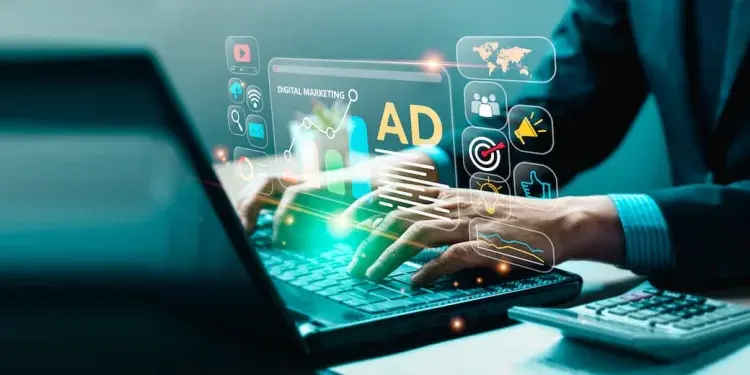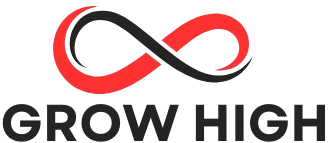
🌐 What is Digital Marketing?
Digital marketing refers to promoting products or services using digital channels like search engines, social media, email, and websites. It is one of the most effective and measurable ways to reach your audience in the modern age.
Why is Digital Marketing Important?
Digital marketing helps businesses:
-
Reach a global audience
-
Track performance in real-time
-
Target specific demographics
-
Engage directly with customers
It allows small businesses to compete with large corporations by leveraging platforms like Google, Facebook, and Instagram.
Traditional Marketing vs. Digital Marketing
| Traditional Marketing | Digital Marketing |
|---|---|
| Newspaper, TV, Radio | SEO, PPC, Social Media |
| Hard to measure ROI | Easy to track and measure |
| Expensive campaigns | Budget-friendly options |
| Broad targeting | Specific audience targeting |
Traditional marketing is still valuable, but digital marketing provides precision, speed, and scalability.
Key Benefits of Digital Marketing
-
Cost-effective compared to print or TV ads
-
Real-time analytics through platforms like Google Analytics
-
Greater engagement through comment sections, likes, shares
-
Higher ROI due to accurate targeting
Highlight: Businesses that use digital marketing grow 2.8 times faster than those that don’t.
Example of Digital Marketing in Action
Let’s say a clothing brand launches a new collection:
-
They run Instagram Ads targeting women aged 18-35.
-
Use email marketing for existing customers.
-
Post blogs with SEO-optimized content.
-
Track all clicks, shares, and conversions.
This is a full digital marketing funnel working to convert viewers into buyers.
Types of Digital Marketing
Here are the main components of digital marketing:
1 . Search Engine Optimization (SEO)
SEO involves improving your website’s visibility on search engines like Google. It’s free (organic) traffic.
Includes:
-
Keyword research
-
On-page optimization (title tags, meta descriptions)
-
Backlinks
-
Mobile optimization
Highlight: SEO is a long-term strategy that delivers consistent traffic over time.
2. Pay-Per-Click Advertising (PPC)
You pay for each click on your ads. Google Ads and Bing Ads are popular PPC platforms.
Best for:
-
Quick traffic boost
-
Product launches
-
Time-sensitive promotions
Highlight: PPC offers instant visibility but requires budget management.
3. Social Media Marketing (SMM)
Using platforms like Facebook, Twitter, Instagram, LinkedIn, and TikTok to promote content.
Tactics:
-
Paid ads
-
Organic posts
-
Influencer marketing
-
Community engagement
Highlight: Ideal for brand building and customer interaction.
4. Email Marketing
Sending targeted emails to customers for
, or nurturing leads.
Examples:
-
Welcome emails
-
Cart abandonment emails
-
Newsletters
-
Sales offers
Highlight: Email marketing offers ROI up to 4200% ($42 return per $1 spent).
5. Content Marketing
Creating valuable and relevant blogs, videos, infographics, and guides to attract customers.
Focuses on:
-
Solving customer problems
-
Building authority
-
Improving SEO
Highlight: “Content is King” — great content drives all other marketing channels.
6. Affiliate Marketing
Partnering with influencers or websites who promote your product for a commission on each sale.
Ideal for:
-
eCommerce
-
SaaS
-
Startups with small marketing teams
Highlight: You only pay for results, not promotions.
7. Mobile Marketing
Marketing through SMS, mobile apps, push notifications, and mobile ads.
Why it matters:
-
Over 60% of traffic comes from mobile devices.
-
Personal, fast, and location-aware.
How Does Digital Marketing Work?
1. Understand Your Audience
Before starting, define:
-
Who your audience is
-
What platforms they use
-
What problems they face
-
What solutions you offer
2. Choose the Right Channels
Not every brand needs every channel.
| Business Type | Ideal Channels |
|---|---|
| Local business | SEO, GMB, Facebook |
| eCommerce | Google Ads, Instagram, Email |
| B2B services | LinkedIn, SEO, Email |
3. Create a Content Strategy
Build content for each stage of the buying journey:
-
Awareness: Blogs, infographics, social media posts
-
Consideration: Webinars, case studies
-
Decision: Testimonials, product demos
4. Analyze & Optimize
Use tools like:
-
Google Analytics
-
SEMrush
-
Ahrefs
-
Meta Business Suite
Track:
-
Traffic
-
Bounce rate
-
Conversion rate
-
ROI
Highlight: “What gets measured gets improved.”
Skills Needed in Digital Marketing
1. SEO & Keyword Research
2. Graphic Design
3. Content Writing
4. Paid Ad Management
5. Analytics Interpretation
6. Communication & Strategy
You don’t need to master all — start with one and grow.
Careers in Digital Marketing
Digital marketing has various job roles:
| Role | Description |
|---|---|
| SEO Specialist | Optimizes websites for search engines |
| PPC Manager | Manages ad campaigns |
| Content Marketer | Writes blogs, creates videos, etc. |
| Social Media Manager | Builds brand presence on social platforms |
| Email Marketer | Designs email campaigns |
Highlight: Digital marketers are in high demand globally.
Tools Used in Digital Marketing
-
Google Ads
-
Google Analytics
-
SEMrush / Ahrefs
-
Canva / Adobe Suite
-
Mailchimp / ConvertKit
-
Buffer / Hootsuite
-
WordPress / Shopify
❓ FAQ (Frequently Asked Questions)
❓ What is the main goal of digital marketing?
✅ To reach potential customers online, build brand awareness, and increase sales or leads.
❓ Is digital marketing easy to learn?
✅ Yes, if you stay consistent. Start with basics like SEO, content writing, or social media. Many free resources are available.
❓ How long does it take to see results?
✅ SEO takes 3–6 months for solid results.
✅ PPC and social ads can show results within days.
❓ Can I do digital marketing without a website?
✅ Yes, you can use social media, email marketing, or YouTube — but having a website helps build trust and control.
❓ Is digital marketing good for small businesses?
✅ Absolutely! It is cost-effective, scalable, and perfect for targeting specific local or niche audiences.
🏁 Conclusion
Digital marketing is the backbone of modern business. Whether you’re a freelancer, a small business, or a global brand, digital marketing gives you the power to connect, convert, and grow. Start with a simple platform, learn continuously, and focus on delivering value to your audience.




